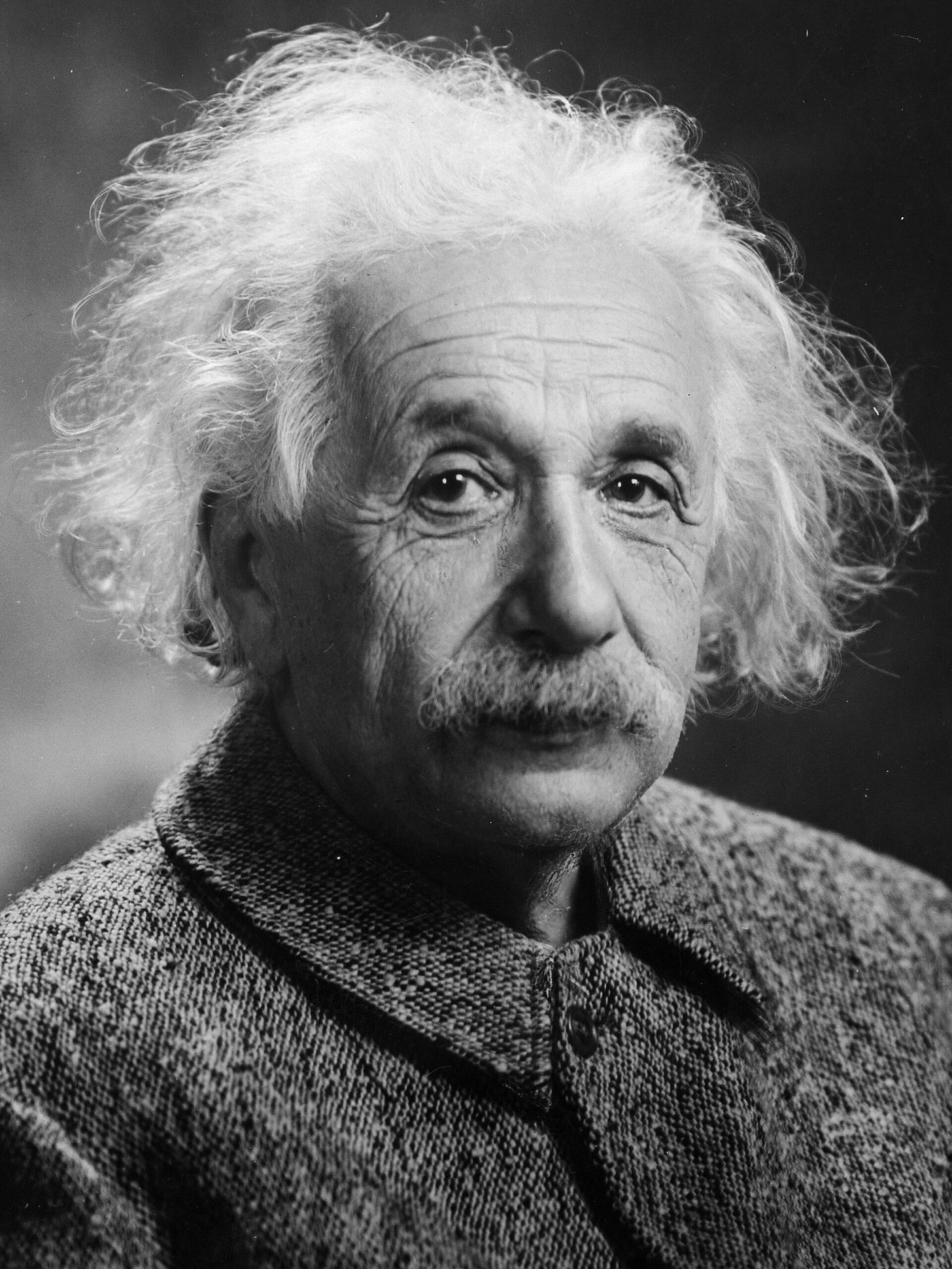What Trump is Costing America: part two
Fools sent European scientists to America; now America may return the favour
As Elon Musk’s chainsaw-wielding teenagers race around the federal government cutting programs they’ve done an astonishing amount of damage to science and universities. Which was perfectly predictable. The US government is the world’s largest funder of science, and American universities are hated cultural totems in the MAGAverse, so carnage was a virtual certainty the moment “Big Balls” and the other Muskovites got jacked up on power and Red Bull and re-enacted the sack of Rome.
The international reaction has been as predictable as the damage.
From The New York Times:
Just hours after opening its new program for American researchers called Safe Place for Science in reaction to Trump administration policies, Aix Marseille University received its first application.
Since then, the university, which is in the south of France and is known for its science programs, has received about a dozen applications per day from what the school considers “scientific asylum” seekers.
Other universities in France and elsewhere in Europe have also rushed to save American researchers fleeing drastic cuts to jobs and programs by the Trump administration, as well as perceived attacks on whole fields of research.
…
If the movement becomes a trend, it could mean the reversal of the long-term brain drain that has seen generations of scientists move to the United States. And while at least some Europeans have noted that the changes in the United States provide a unique opportunity to build stronger European research centers, most academics say that competition is not the short-term motivation.
“This program is ultimately linked to indignation, to declare what is happening in the United States is not normal,” said Éric Berton, president of Aix Marseille University, which has earmarked 15 million euros (nearly $16,300,000) for 15 three-year positions.
Musk's Problem? No Alanbrooke.
Close observers of MuskWorld, including Kara Swisher, who was a friend of Musk’s for many years, have noted that Elon Musk made the classic mistake of the powerful: He surrounded himself with like-minded friends, family, and hangers-on who do far too much cheerleading for the great man and far too little pushing back.
Scientific research tends to follow wealth creation. After Great Britain industrialized first, Britain dominated science. When Germany industrialized and its economy surpassed Britain’s, Germany’s science followed the same trajectory.
But along with money, science requires freedom from politics and capricious power.
Economic growth in the Soviet Union was not matched by scientific advance because the Soviet government decided which subjects were and were not worthy of scientific investigation, and sometimes, as in the case of Lysenkoism, decided what those investigations should conclude. Inquiries didn’t happen. Shoddy science was rewarded; good science was punished. Outstanding scientists fled the country.
But it was Germany that most dramatically illustrated how politics and power can undermine science.
By the early 20th century, German science led the world and young scientists all over the planet knew that if they wanted to study with the best they had to go to a German university. This continued even after Germany lost the First World War and struggled to regain its economic footing. But then came the Nazis.
National Socialism promoted an epistemology in which the racially healthy individual could “feel” the truth, which was a handy way of politicizing scientific questions. After all, the racially healthy man knew Jews and others were biologically inferior to Aryans, so of course scientific investigation would confirm that. Or else. That was an obvious expectation. But such arbitrary intrusions could come in almost any field. If some official decided, for whatever reason, that the Aryan truth of some question was this and not that, scientists had better prove this and not that. Even the taint of association was enough to determine the “correct” path for science: Albert Einstein was a Jew, so relativity became “Jewish science,” which was self-evidently wrong, and a “German physics” was promoted in its place.
Along with this interference came direct persecution. One of Hitler’s early acts was to strip Jews of teaching posts in universities. In an instant, Germany lost one-quarter of is physicists, including eleven past or future Nobel Prize winners. Most fled into exile, starting with Einstein.
The rise of fascism and anti-Semitism in southern and Central Europe, particularly Italy and Hungary, added to the exodus.
What Trump is Costing America
At least since the earliest days of the Clinton era, a substantial and growing portion of American voters has resented the international order led by the United States for a simple reason: America’s leadership was less about giving orders to others and more about America doing the heavy lifting. And picking up the tab.
And where did all that brilliance go?
Mostly to the United States, which had the world’s largest economy, freedom of inquiry, the rule of law — and a solid guarantee that science would not be politicized and scientists would not be subjected to capricious power.
It’s hard to overstate how much the United States benefited by Europe’s loss of scientists.
Dozens of the most important minds working on the Manhattan Project were in the United States because they had been driven from Europe. They included Enrico Fermi, Leo Szilard, and Edward Teller.
In the post-war years, the United States became the undisputed colossus of science. For the first time, its universities and ideas and culture towered over the world. And if you look at the people who made this golden age, you will find the likes of John von Neumann, Hannah Arendt, and Leo Strauss — brilliant European minds driven to the United States by bigots, zealots, and fools.
After that, with the centre of scientific gravity having shifted so decisively, and the American economy churning out wealth, and the conditions of free inquiry guaranteed, American science and universities rose to a degree of global dominance no other country has ever held.
That’s how we got to the world we know today: A world in which it is almost a given that Europe’s most promising minds in science and the humanities will cross the ocean to study in America. The best of those stay — which convinces the next generation of promising Europeans to follow.
Americans have won 420 Nobel Prizes, three times more than the next-closest country (Britain). But almost one-third of those winners came to the United States from elsewhere.
The number one source of those American-laureates-from-abroad?
Germany.
How Canada Should Respond to Trump
There is an ancient line that expresses a bleak and brutal understanding of human relations: “The strong do what they can and the weak suffer what they must.”
Today, the dominance of American science and American universities seems like one of the givens of the modern world.
Or rather, it seemed so. Until Donald Trump.
Now, to ensure there is no ambiguity, I am not saying the Trumpians are Nazis.
But there’s no question they politicize all they see. Just recall the press conference at which the president offered consoling words following a deadly plane crash — then blamed “DEI” policies for the disaster even though there wasn’t the tiniest trace of evidence to connect the two.
And there’s no question Trumpian political obsessions warp how they see science and inquiry. Climate science has been explicitly targeted, presumably because it has the unfortunate tendency to produce studies uncongenial to the president’s belief that anthropogenic climate change is a hoax, or not serious, or whatever. Meanwhile, any word associated with “wokeness” — from “diversity” to “equity” and “gender” — is enough to attract the chainsaws.
As for capriciousness, consider that Donald Trump, who hates everything associated the energy transition, and railed against electric vehicles for years, held a press conference on the lawn of the White House to urge Americans to buy Teslas. Or read any summary of the activities of Musk’s teenagers. I predict that in future “doge” will be a verb meaning “to be treated brutally for inexplicable reasons.”
So what will that stew of power, politics, and caprice do to American science?
I doubt it could ever do as much damage as the Nazi government did to German science because it is not remotely as coherent and it lacks the animating madness of anti-Semitism. But on the other side of the ledger, science today is far more complex than in the past, far more likely to involve dozens of researchers on a single project, far more likely to span countries and time zones. That makes it far more difficult to get major research underway. So I think it’s a safe bet that if Big Balls & Co. can suddenly yank funding from programs for reasons never to be explained — maybe it was a mistake, maybe an apparatchik wanted to curry favour with the boss, or maybe one of the mercurial geniuses on top woke up with a new whim — scientists will be much more cautious about undertaking such programs. Remember, this isn’t only their work. It’s their lives. Arbitrary cuts ruin far more than research.
If this situation gets bad enough, and if it is sustained long enough, there is no question scientists in America will go somewhere free of Trump, Musk, and Big Balls.
Somewhere like Europe.
Once again, history demonstrates that it has a wicked sense of humour.








Canada educated brilliant scholars and scientists, then exports them. It’s time to bring them home! Canada should reap the benefits from their talents! Fund their work and support Canadian scientists! This is the time like no other! Elbows Up’🇨🇦
When the west starting swinging right in the early 2000s, government scientist like the National Research Council were told by Harper that their science had be directly applicable to corporate use many left. I suspect this happened in other countries, It certainly happened in international research institutes were the science agenda switched to individual donor' agendas and core funding went from 80% to less than 20 %, which meant the scientists have to spend enormous of amounts of time applying for short term projects. Many went back to Universities and Singapore offered support to scientists wanting to continue their research into what mattered to science.